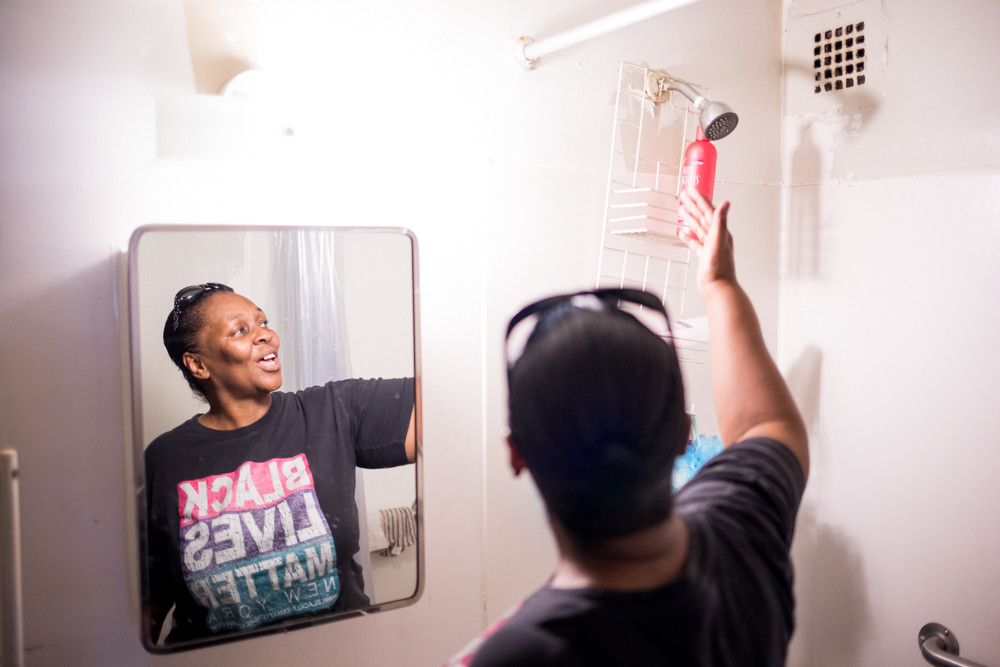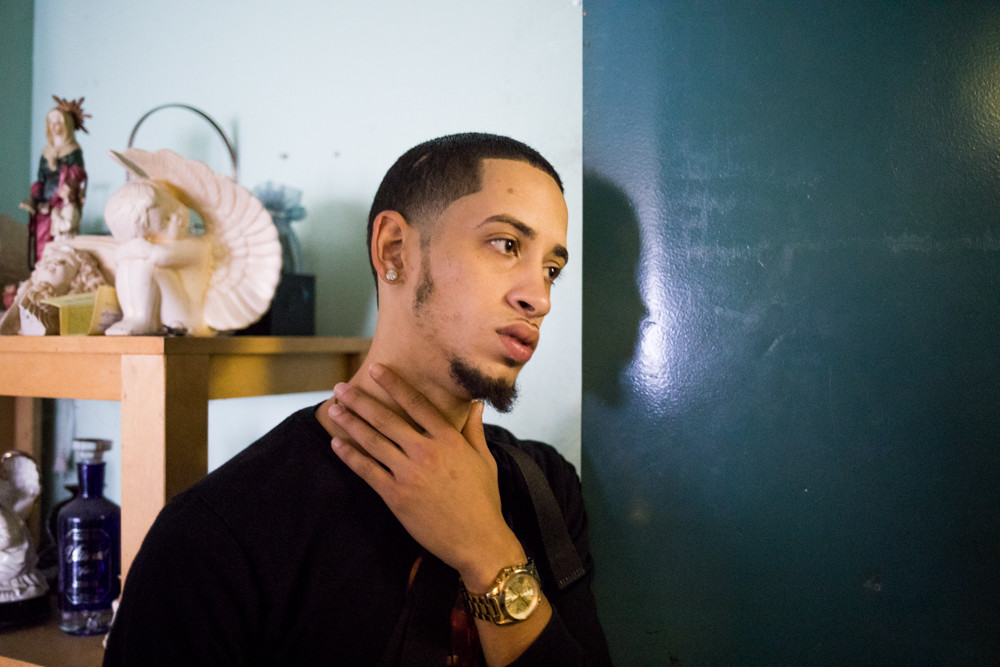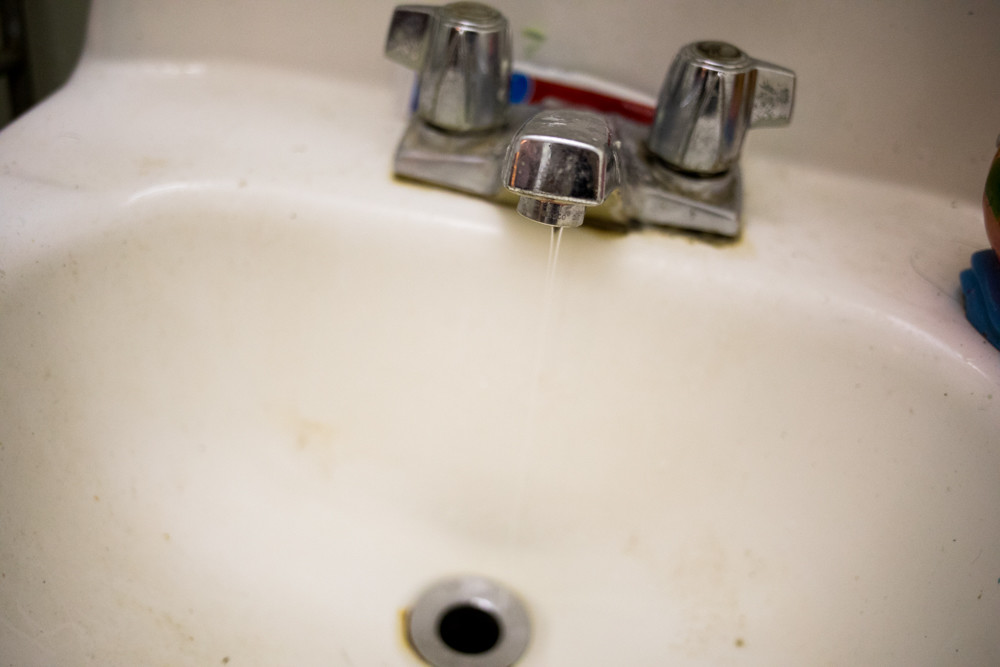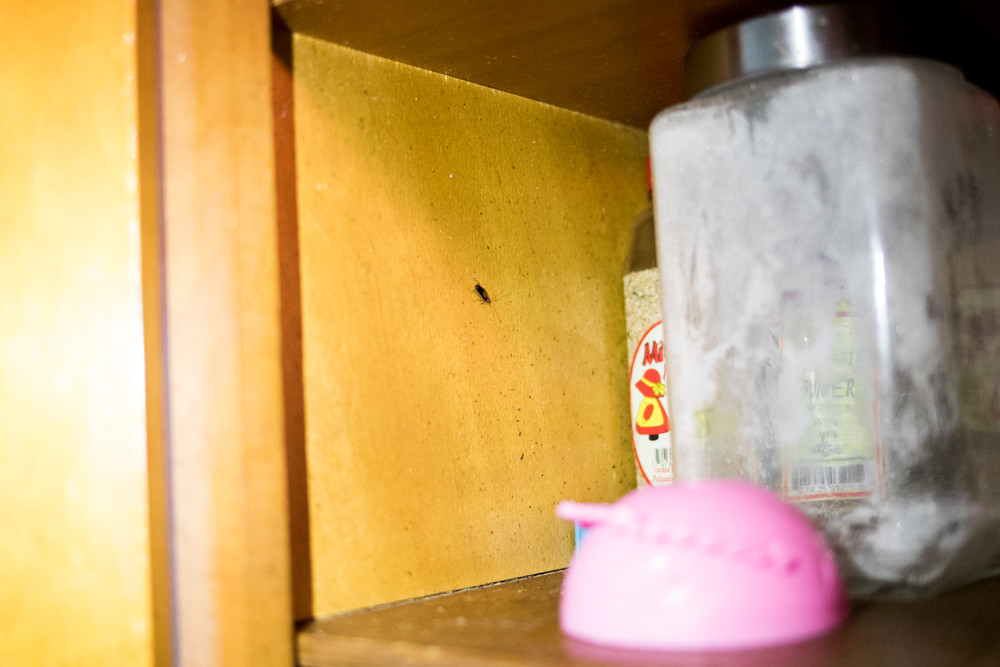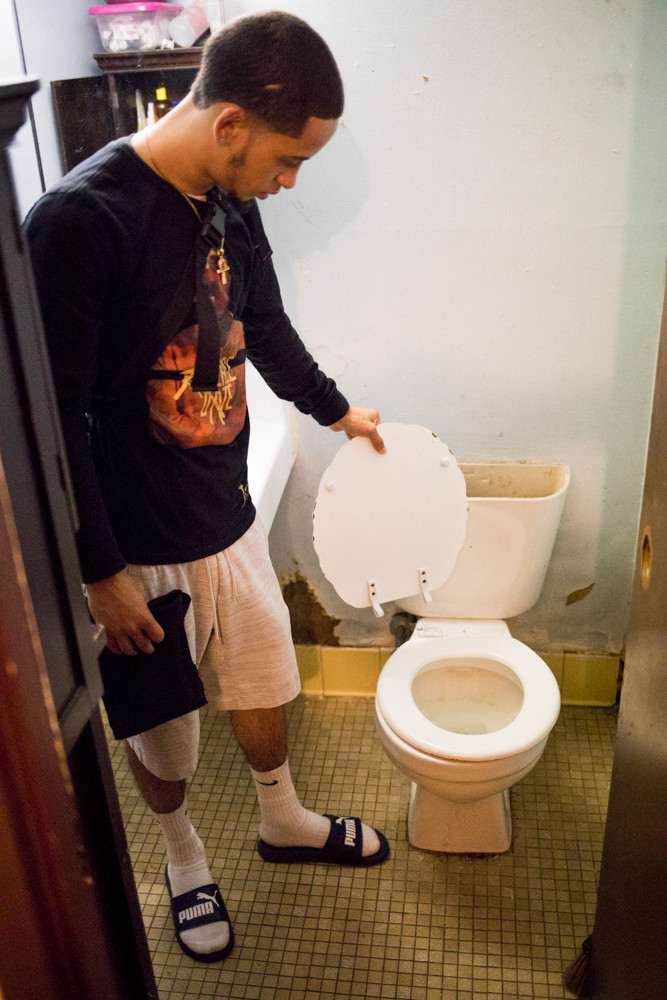These apartments are sickening
Legionnaires’ may be a deadly disease, but it’s just one more worry amidst a seemingly eternal mountain of plights afflicting the woebegone residents of Fort Independence Houses where words fail to describe shockingly abysmal conditions.
“We’re living in hell,” said Jessie Torres, whose front door knob and lock have been broken for more than a year, meaning anyone can march right into his roach- and rodent-infested apartment.
Thankfully, he and his brother living there have a dog — who resident association president Barbara Lauray describes as a beautiful “killing beast” — faithfully guarding his abode.
But the dog can’t do much to get rid of the roaches roaming free in Torres’ kitchen, where he lifts a box of resealable storage bags sending a small army of insects scurrying in all directions. It’s impossible to buy food and store it in the kitchen without roaches laying claim to it, Torres said, let alone make a sandwich on the counter without the creatures rushing onto the plate.
Even with fastidious cleaning, Torres said, within a day or two, vermin reclaim every corner of the apartment.
It gets worse
Given the daily “hell” Torres and many of his neighbors endure, it’s probably hard to imagine things actually getting worse.
But they have.
Two people reportedly contracted Legionnaires’ disease at Fort Independence, prompting the city’s health department to show up Aug. 31 and tell residents not to shower in hot water or drink water, former resident and tenant leader Tiesha Jones said. The New York City Housing Authority, she added, failed to properly inform them about the development.
“It’s just mortifying for the residents,” Jones said. “They feel like the building is falling apart. They feel like NYCHA don’t really care. (NYCHA) should be more responsive to the residents. Give the residents more answers to the questions they need.”
Questions like how long they should avoid showering or drinking water, which Jones says wasn’t quite clear.
A NYCHA spokesman declined to comment, referring a reporter’s questions to the health department, which is leading the investigation into the Legionnaires’ finding at Fort Independence.
Health department officials said they distributed flyers and held a meeting as soon as soon as they learned about the two Legionnaires’ cases on Aug. 31. The health department initiates a building investigation whenever there are two cases of Legionnaires’ disease in a single building within a year, spokesman Christopher Miller said. It involves evaluating the building’s plumbing system, conducting random water sampling, and then looking for evidence of Legionella bacteria.
And as soon as they have results, Miller said they’ll communicate them to residents and NYCHA.
Not contagious, but...
Both of the Fort Independence Legionnaires’ cases happened within the last 12 months, Miller said. Both patients were at higher risk for the disease, and have been discharged from the hospital.
Legionnaires’ disease isn’t contagious and is easily treatable with antibiotics, health officials said. People get it by breathing in water vapor containing the bacteria. Adults with flu-like symptoms, fever, cough or difficulty breathing should seek immediate medical attention.
Fort Independence tenants can actually still use and drink water, health officials said, although tenants at a higher risk of getting Legionnaires’ — including those 50 or older, people with chronic lung disease and with weakened immune systems — are advised to take additional precautions.
That includes not taking a shower — even a cool shower — since it could create water vapor. Instead, health officials urge them to take a bath, but fill the tub slowly, and to minimize time in the bathroom while the tub fills.
But some residents are wheelchair-bound or have other medical conditions that prevent them from getting into the tub, Lauray said, leaving them unable to bathe.
Washing dishes is still OK, health officials said, but recommend filling the sink slowly to avoid creating mist. Yet, even that creates a risk, Lauray said, because when she turns on hot water in her kitchen, it’s so hot, she’s immediately enshrouded by vapor.
It’s also fine to drink cold water from the tap, according to health department officials, and wearing a mask isn’t necessary. Also important — residents should wash their hands.
Silence isn’t golden
Still, even with the health department’s investigation underway, Lauray maintains her building’s residents have been deeply wronged, well beyond the two recent Legionnaires’ findings.
“NYCHA does nothing about this,” Lauray said. “They treat us like this is a third world country. We pay rent. We pay bills. The living conditions are shabby. You can’t even shower in your bathroom. It’s unbelievable.”
And the health department’s Legionnaires’ investigation following the two recent cases?
“They should’ve done that 12 months ago,” Lauray said.
What especially irks Lauray and her neighbors, however, is what they view as NYCHA’s utter lack of responsiveness and transparency. While the housing authority told Lauray about the meeting Aug. 31, they didn’t tell her what the meeting was about. That she learned from Councilman Fernando Cabrera.
“It is absolutely staggering that NYCHA is not responding,” Cabrera said, adding that at least half of Fort Independence residents are senior citizens, putting them at especially high risk for contracting Legionnaires’. Given their vulnerability, NYCHA’s silence “is incomprehensible and inexcusable.”
“That communicates to me either one of two things,” Cabrera said. “Either you’re ineffective at being able to address a problem of this magnitude, or that you’re hiding something.”
Amidst deadly disease, vermin, and basic repairs that never seem to come, Torres still clings to a relentless faith there’s an end to the misery.
“We just try to stay positive,” he said. “But it’s hard. It’s real hard. We’re trying to keep it together as tenants, but they’re (NYCHA) just taking our money and (expletive) on us. It’s sad.”

